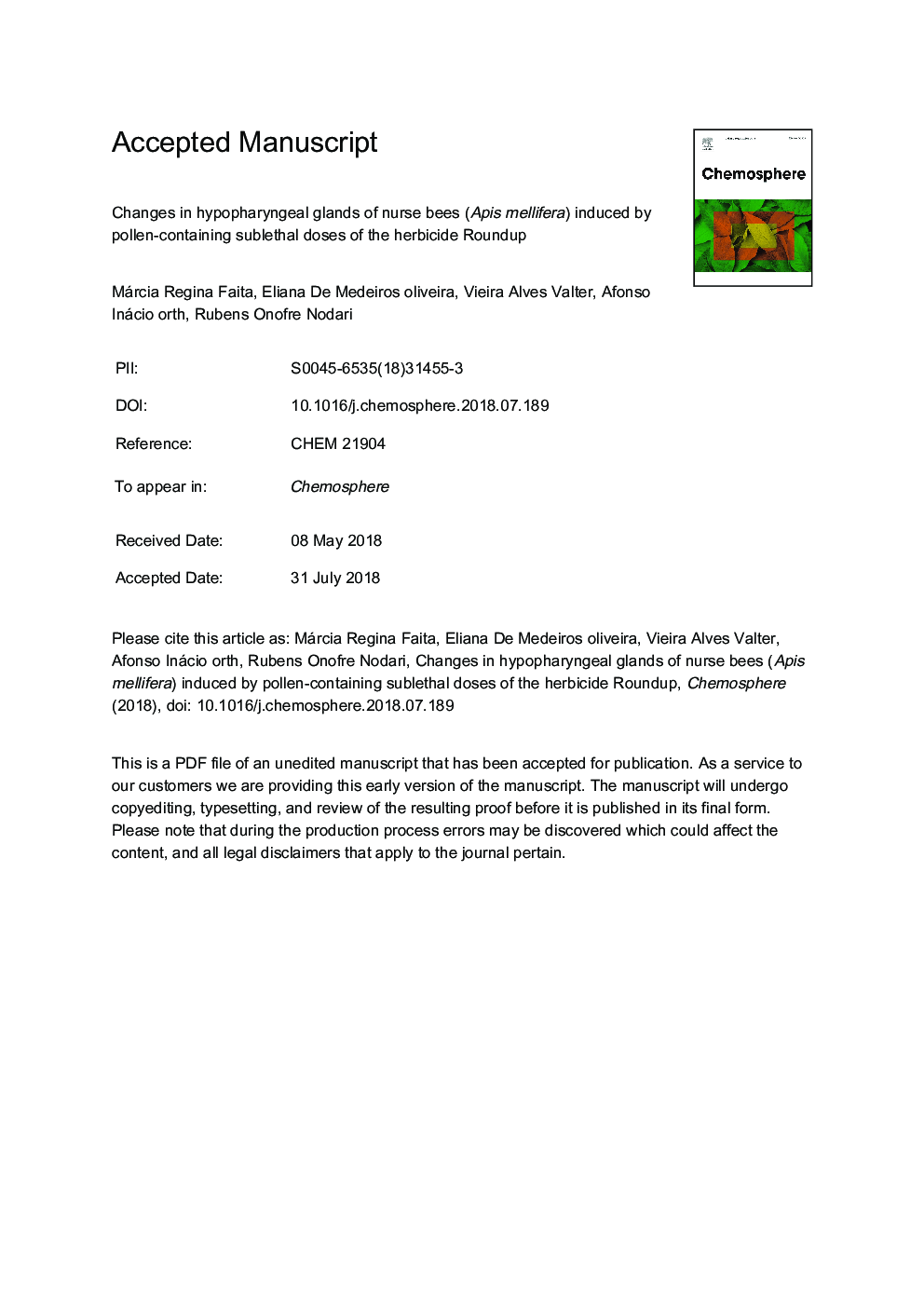| Article ID | Journal | Published Year | Pages | File Type |
|---|---|---|---|---|
| 8850324 | Chemosphere | 2018 | 28 Pages |
Abstract
Decreasing pollinator populations worldwide has generated great concern and stimulated countless studies to understand the origin of colony losses. One main cause is the indiscriminate use of different pesticides, producing subtle negative effects on bee physiology and behavior. Royal jelly synthesized in the hypopharyngeal glands is an essential protein for feeding all individuals of the hive, especially the queen. Therefore, the present study aimed to determine the effect of sublethal concentrations of Roundup® on the hypopharyngeal glands of nursing workers, including its interference with the production of royal jelly. The herbicide was found to promote changes in the cellular ultrastructure of these glands, causing early degeneration of the rough endoplasmic reticulum and morphological and structural changes in the mitochondria. No changes were noted in the amount of royal jelly produced, but additional long-term studies are necessary to determine possible qualitative changes. This is the first study to evaluate the effect of Roundup® on the royal jelly-producing glands, showing that resultant alterations in these structures can trigger damage to the development and survival of bee colonies.
Related Topics
Life Sciences
Environmental Science
Environmental Chemistry
Authors
Márcia Regina Faita, Eliana de Medeiros Oliveira, Valter Vieira Júnior, Afonso Inácio Orth, Rubens Onofre Nodari,
